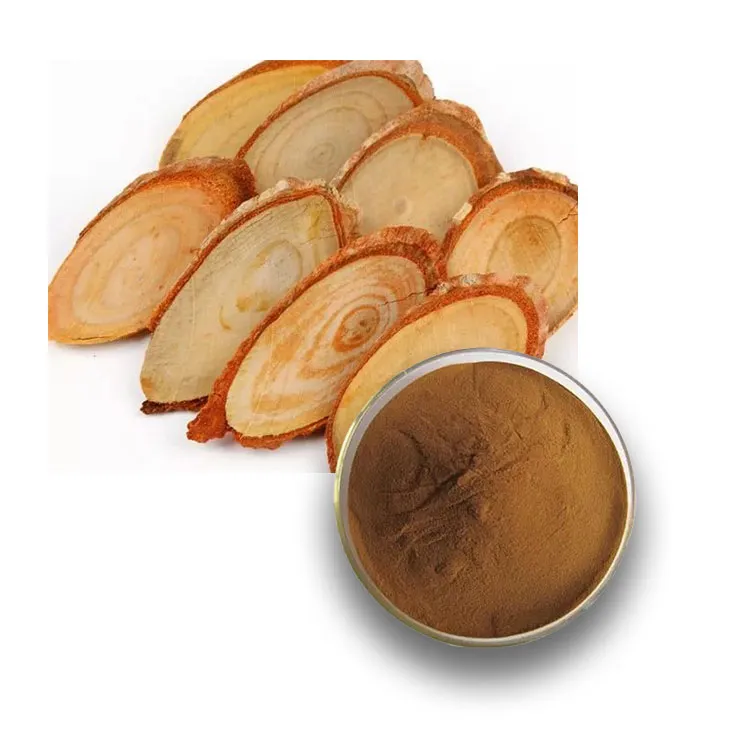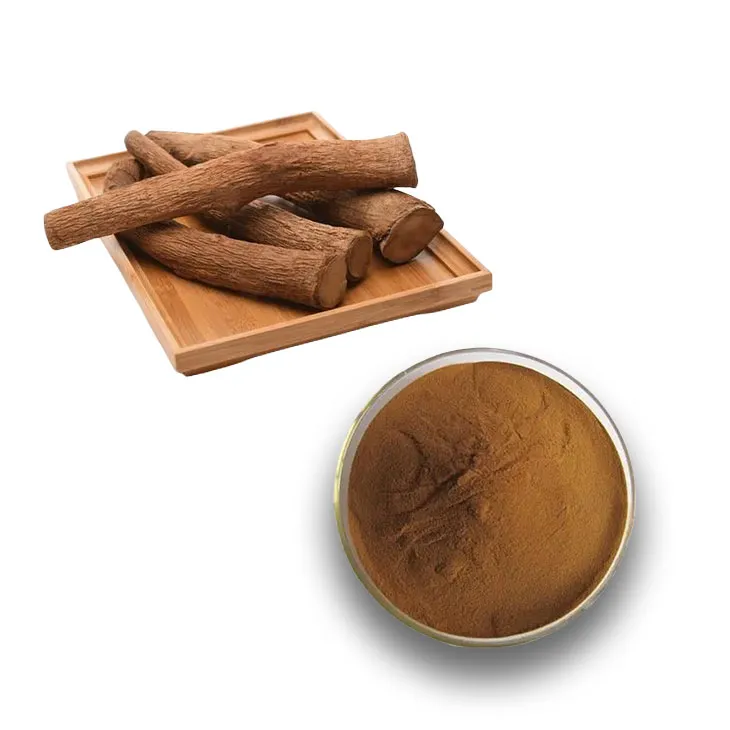- 0086-571-85302990
- sales@greenskybio.com
How to conduct business in the highly - profitable Tongkat Ali extract powder industry.
2024-12-10

1. Understanding the Market Demand
Market Research Basics
To succeed in the Tongkat Ali Extract powder industry, comprehensive market research is essential. Start by analyzing the current market size. This involves looking at both the domestic and international markets. For example, in Asia, there has been a growing trend in the use of Tongkat Ali Extract powder in traditional medicine and health supplements. In the Western markets, it is gradually gaining popularity as a natural performance - enhancing and libido - boosting ingredient.
Another aspect of market research is identifying the target customers. Are they fitness enthusiasts looking for natural pre - workout supplements? Or are they middle - aged individuals interested in improving their overall well - being? Understanding the demographics, psychographics, and buying behavior of the target customers will help in tailoring the product and marketing strategies.
Trend Analysis
Keeping an eye on market trends is crucial. One emerging trend is the increasing demand for organic Tongkat Ali Extract powder. Consumers are becoming more conscious about the source and production methods of the products they consume. Additionally, the trend towards personalized nutrition is also affecting the Tongkat Ali Extract Powder market. For instance, some companies are starting to offer customized supplement blends based on individual health needs.

2. Ensuring Product Quality
Quality Control at the Source The quality of Tongkat Ali Extract Powder starts with the raw materials. It is important to source Tongkat Ali roots from reliable suppliers. Ideally, these suppliers should have sustainable farming practices to ensure a consistent supply of high - quality raw materials. For example, in Malaysia, where Tongkat Ali is native, some suppliers follow strict guidelines for harvesting the roots at the right maturity level. Manufacturing Standards During the extraction process, strict manufacturing standards must be adhered to. This includes using proper extraction techniques such as water - based or solvent - based extraction, depending on the desired purity and concentration of the extract. The manufacturing facility should also be compliant with Good Manufacturing Practice (GMP) standards. This ensures that the final product is free from contaminants, has accurate labeling, and meets the required potency levels. Testing and Certification Regular testing of the Tongkat Ali Extract Powder is necessary. This can include tests for purity, active ingredient content, and the presence of any harmful substances. Third - party testing is highly recommended as it provides an unbiased assessment of the product quality. Obtaining relevant certifications such as ISO certifications or organic certifications can enhance the credibility of the product in the market.

3. Navigating Regulatory Requirements
Domestic Regulations Different countries have varying regulations regarding the production, sale, and marketing of Tongkat Ali extract powder. In some countries, it may be classified as a dietary supplement, while in others, it may be subject to more stringent regulations as a herbal medicine. For example, in the United States, dietary supplements are regulated under the Dietary Supplement Health and Education Act (DSHEA). This requires proper labeling, including ingredient lists, dosage instructions, and warning statements if applicable. International Regulations When it comes to international trade, compliance with international regulations is essential. The European Union has strict regulations for herbal products, including requirements for safety, quality, and efficacy assessment. Exporters need to ensure that their Tongkat Ali extract powder meets these requirements. Additionally, some countries may have import restrictions or specific documentation requirements. For instance, certain Asian countries may require import licenses for herbal products.

4. Effective Marketing Strategies
Online Marketing In today's digital age, online marketing plays a significant role in promoting Tongkat Ali extract powder. Creating a professional website is the first step. The website should provide detailed information about the product, its benefits, and scientific research behind it. Search engine optimization (SEO) techniques can be used to improve the website's visibility on search engines. Social media marketing is also effective. Platforms like Instagram and Facebook can be used to reach a wider audience. For example, fitness influencers can be partnered with to promote the product to their followers. Offline Marketing Offline marketing should not be overlooked. Participating in health and fitness expos can help showcase the product to potential customers. Distributing brochures and samples at these events can create brand awareness. Additionally, forming partnerships with health stores and gyms can increase the product's availability and visibility. For example, having the product prominently displayed in a gym's supplement section can attract the attention of fitness - minded customers. Branding and Packaging A strong brand identity is crucial. The brand name should be memorable and associated with quality and trust. The packaging of Tongkat Ali extract powder should be both attractive and functional. It should protect the product from degradation and clearly display important information such as the ingredients, dosage, and expiration date.
5. Building Reliable Supply Chains
Supplier Selection Selecting the right suppliers is the foundation of a reliable supply chain. Look for suppliers with a proven track record of quality and reliability. They should be able to meet your quantity requirements in a timely manner. For example, if you have a large - scale production plan, the supplier should have the capacity to supply the necessary amount of Tongkat Ali roots consistently. Logistics and Inventory Management Efficient logistics are necessary to ensure the smooth flow of products. This includes proper transportation, warehousing, and inventory control. For Tongkat Ali extract powder, which may be sensitive to environmental factors such as temperature and humidity, proper storage conditions are crucial. Inventory management should be optimized to avoid overstocking or stock - outs. Using inventory management software can help in tracking inventory levels and predicting future demand. Risk Management in the Supply Chain Identifying and mitigating risks in the supply chain is important. Risks can include supply disruptions due to natural disasters, political instability in the source region, or changes in regulations. Having contingency plans in place, such as alternative suppliers or emergency stockpiles, can help in minimizing the impact of these risks.
6. Forging Partnerships
Research Institutions Partnering with research institutions can provide several benefits. They can conduct scientific research on Tongkat Ali extract powder, which can be used for marketing purposes. For example, research on the efficacy of the extract in improving male fertility can be a strong selling point. Additionally, research institutions can help in developing new extraction techniques or improving product quality. Industry Associations Joining and partnering with industry associations can enhance your business's credibility. Industry associations can provide valuable information on market trends, regulatory changes, and industry best practices. They can also offer networking opportunities with other industry players. For instance, through an industry association, you may be able to find potential joint - venture partners or suppliers. Other Businesses in the Health and Wellness Sector Collaborating with other businesses in the health and wellness sector can expand your market reach. For example, partnering with a vitamin supplement company can lead to co - branding opportunities or the creation of bundled products. This can attract more customers who are interested in a comprehensive approach to their health.
FAQ:
What are the main market demands for Tongkat Ali extract powder?
The main market demands for Tongkat Ali extract powder include its use in the health supplement industry. It is in high demand for products related to male health, such as enhancing testosterone levels, improving energy and stamina. Also, it has a growing market in the field of natural remedies for various health issues. There is an increasing consumer interest in natural and herbal products, which drives the demand for Tongkat Ali extract powder in the global market.
How can one ensure the quality of Tongkat Ali extract powder?
To ensure the quality of Tongkat Ali extract powder, first, source the raw materials from reliable and sustainable suppliers. These suppliers should have proper cultivation and harvesting practices. Second, strict manufacturing processes need to be followed. This includes using advanced extraction techniques to maintain the purity and potency of the active ingredients. Third, conduct regular quality control tests. These tests can include chemical analysis to verify the concentration of active compounds, as well as microbiological tests to ensure the product is free from contaminants.
What are the regulatory requirements for the Tongkat Ali extract powder business?
The regulatory requirements vary from country to country. In general, it is necessary to comply with food and drug regulations. For example, in some regions, it needs to be registered as a dietary supplement. There are often strict rules regarding product labeling, including accurate ingredient lists, dosage instructions, and warnings. Additionally, manufacturing facilities may need to meet certain hygiene and safety standards. It is crucial to stay updated with the regulatory changes in different markets to ensure legal operation.
What are effective marketing strategies for Tongkat Ali extract powder?
Effective marketing strategies for Tongkat Ali extract powder include digital marketing. Using social media platforms to raise awareness about the product's benefits can reach a wide audience. Influencer marketing can also be effective, where health - related influencers promote the product. Another strategy is to participate in health and wellness trade shows to showcase the product. Additionally, providing educational content about Tongkat Ali extract powder, such as its scientific research - backed benefits, can attract more customers.
How to build a reliable supply chain for Tongkat Ali extract powder?
To build a reliable supply chain for Tongkat Ali extract powder, start by identifying and partnering with reputable raw material suppliers. Establish long - term contracts with them to ensure a stable supply. Then, optimize the transportation and logistics processes to minimize delays and ensure product freshness. Also, implement a system for tracking and tracing the product throughout the supply chain. This can help in quality control and also in dealing with any potential issues quickly.
Related literature
- The Market Potential of Tongkat Ali Extract in the Health Supplement Industry"
- "Quality Control Standards for Herbal Extracts: A Case Study of Tongkat Ali"
- "Regulatory Frameworks for Herbal Extract - Based Products: Focus on Tongkat Ali"
- "Marketing Strategies for High - Value Herbal Extracts: Tongkat Ali as an Example"
- "Building Sustainable Supply Chains in the Tongkat Ali Extract Powder Business"
- ▶ Hesperidin
- ▶ Citrus Bioflavonoids
- ▶ Plant Extract
- ▶ lycopene
- ▶ Diosmin
- ▶ Grape seed extract
- ▶ Sea buckthorn Juice Powder
- ▶ Fruit Juice Powder
- ▶ Hops Extract
- ▶ Artichoke Extract
- ▶ Mushroom extract
- ▶ Astaxanthin
- ▶ Green Tea Extract
- ▶ Curcumin
- ▶ Horse Chestnut Extract
- ▶ Other Product
- ▶ Boswellia Serrata Extract
- ▶ Resveratrol
- ▶ Marigold Extract
- ▶ Grape Leaf Extract
- ▶ New Product
- ▶ Aminolevulinic acid
- ▶ Cranberry Extract
- ▶ Red Yeast Rice
- ▶ Red Wine Extract
-
Boswellia Serrata Extract
2024-12-10
-
Beetroot juice Powder
2024-12-10
-
Red Wine Extract
2024-12-10
-
Dandelion Leaf Extract
2024-12-10
-
Scutellaria Extract
2024-12-10
-
Lotus leaf extract
2024-12-10
-
Reishi mushroom extract
2024-12-10
-
Maitake Mushroom Extract
2024-12-10
-
Astaxanthin
2024-12-10
-
White Peony Extract
2024-12-10





















